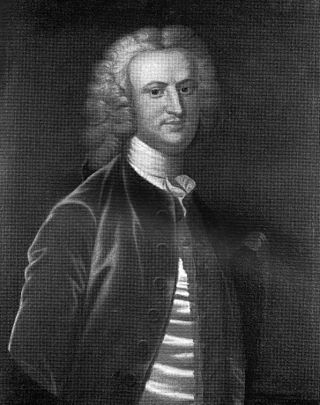Related Research Articles

Article Three of the United States Constitution establishes the judicial branch of the U.S. federal government. Under Article Three, the judicial branch consists of the Supreme Court of the United States, as well as lower courts created by Congress. Article Three empowers the courts to handle cases or controversies arising under federal law, as well as other enumerated areas. Article Three also defines treason.

The Court of Chancery was a court of equity in England and Wales that followed a set of loose rules to avoid a slow pace of change and possible harshness of the common law. The Chancery had jurisdiction over all matters of equity, including trusts, land law, the estates of lunatics and the guardianship of infants.

The lord chancellor, formally the lord high chancellor of Great Britain, is the highest-ranking traditional minister among the Great Officers of State in Scotland and England in the United Kingdom, nominally outranking the prime minister. The lord chancellor is appointed by the sovereign on the advice of the prime minister. Prior to their Union into the Kingdom of Great Britain, there were separate lord chancellors for the Kingdom of England and the Kingdom of Scotland; there were lord chancellors of Ireland until 1922.

Thomas Johnson was an 18th-century American lawyer, politician, and patriot. He was a delegate to the First Continental Congress in 1774, where he signed the Continental Association; commander of the Maryland militia in 1776; and elected first (non-Colonial) governor of Maryland in 1777. Throughout his career, Johnson maintained a personal and political friendship with George Washington, who gave him a recess appointment as an associate justice of the Supreme Court in August 1791. He served only briefly, resigning in January 1793, citing health issues.

Theodorick Bland was a Maryland attorney, statesman, a United States district judge of the United States District Court for the District of Maryland and Chancellor of Maryland.

The Supreme Court of the State of North Carolina is the state of North Carolina's highest appellate court. Until the creation of the North Carolina Court of Appeals in the 1960s, it was the state's only appellate court. The Supreme Court consists of six associate justices and one chief justice, although the number of justices has varied from time to time. The primary function of the Supreme Court is to decide questions of law that have arisen in the lower courts and before state administrative agencies.
The Midnight Judges Act represented an effort to solve an issue in the U.S. Supreme Court during the early 19th century. There was concern, beginning in 1789, about the system that required the Justices of the Supreme Court to "ride circuit" and reiterate decisions made in the appellate level courts. The Supreme Court Justices had often expressed concern and suggested that the judges of the Supreme and circuit courts be divided. The Act was repealed by Congress on January 22, 1802.

William Smallwood was an American planter, soldier and politician from Charles County, Maryland. He served in the American Revolutionary War, rising to the rank of major general. He was serving as the fourth Governor of Maryland when the state adopted the United States Constitution.

The Delaware Court of Chancery is a court of equity in the American state of Delaware. It is one of Delaware's three constitutional courts, along with the Supreme Court and Superior Court. Since 2018, the court consists of seven judges. The chief judge is called the Chancellor, and the remaining judges are called Vice Chancellors. The chancellor and vice chancellors are nominated by the governor and confirmed by the state senate for 12-year terms.

Addison Gardiner was an American lawyer and politician who served as Lieutenant governor of New York from 1845 to 1847 and Chief Judge of the New York Court of Appeals from 1854 to 1855.
The New York Court of Chancery was the highest court in the State of New York from 1701 to 1847.
William Burton Chandler III is a former judge in the U.S. state of Delaware. He served as a resident judge on the Delaware Superior Court and as a Vice Chancellor and then Chancellor on the Delaware Court of Chancery.

The Vice-Chancellor of the County Palatine of Lancaster is an office of the Duchy of Lancaster. The vice-chancellor is appointed by the Chancellor of the Duchy of Lancaster after consultation with the Lord High Chancellor of Great Britain. Since 1987, the vice-chancellor has been a High Court judge of the Chancery Division with a term of approximately three years.
William Sprigg was an American attorney who twice served as Justice of the Ohio Supreme Court, as well as adjudicated on the Superior Court of the Orleans Territory and the highest court of the Illinois Territory.

Benedict Swingate Calvert was a planter, politician and a Loyalist in Maryland during the American Revolution. He was the son of Charles Calvert, 5th Baron Baltimore, the third Proprietor Governor of Maryland (1699–1751). His mother's identity is not known, though one source speculates that she was Melusina von der Schulenburg, Countess of Walsingham. As he was illegitimate, he was not able to inherit his father's title or estates, which passed instead to his half brother Frederick Calvert, 6th Baron Baltimore (1731–1771). Benedict Calvert spent most of his life as a politician, judge and planter in Maryland, though Frederick, by contrast, never visited the colony. Calvert became wealthy through proprietarial patronage and became an important colonial official, but he would lose his offices and his political power, though not his land and wealth, during the American Revolution.

Alexander Contee Hanson Sr. was an attorney who served as Chancellor of Maryland from 1789 until his death.
William Kilty was a Revolutionary War veteran and Maryland lawyer who became the Chief United States circuit judge of the United States Circuit Court of the District of Columbia (1801-1806) and then the 3rd Chancellor of Maryland (1806-1821). During his service in the latter office, he wrote an influential summary of the British Statutes still in force in Maryland, and served on a committee established to address a British blockade of American vessels.
John Johnson Jr. was the last Chancellor of Maryland, serving in that office from to 1846 to 1851.
John Johnson Sr. was a Maryland attorney and judge, and the fourth Chancellor of Maryland, from 1821 to 1824.
Marbury, Miller & Evans was a Baltimore-based law firm.